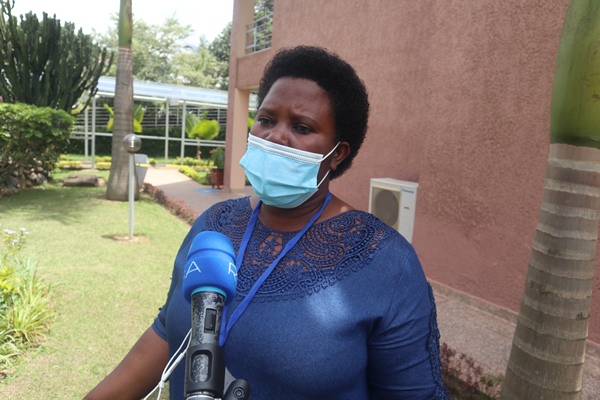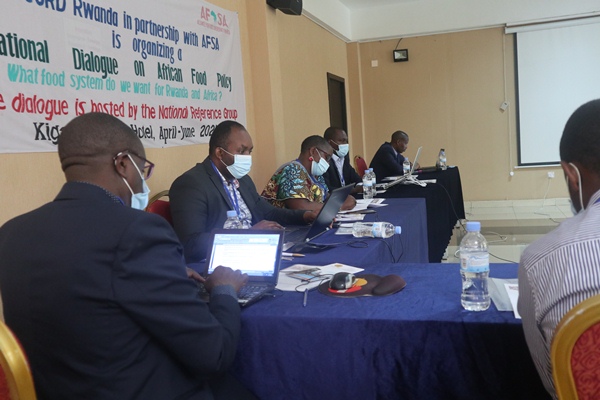
Ms. Agnès Mukayiranga, specialist in the coordination of crop innovation and technology transfer within RAB
The observation that emerges in order to achieve sufficient and quality food for Rwanda is that there is an urgent need to harmonize the agricultural policies in place in the country, according to Ms. Agnès Mukayiranga, specialist in the coordination of crop innovation and technology transfer within the Rwanda AgricultureBoard (RAB).
“There is a need to harmonize the agricultural policies in place that govern the harvesting and storage of crops, their marketing, and the use of soil, seeds and inputs. All these policies are in place and play a role in making agriculture that supports the population more productive. Our wish is to see how these policies can be coordinated and harmonized like value chains. When the cropping season ends, another policy that governs harvesting, drying and conservation is put in place, then follows the policy of transport to markets, the policy of marketing, processing ”, she indicated.
Specialist Mukayiranga recognizes that each institution works independently, without harmonization and coordination of policies in place. The important thing is that all policies complement each other.

Responding to the concerns of participants in a meeting organized by the National Reference Group (GNR), under the initiative of the Association for Cooperation, Research and Development (ACORD), the specialist in crop innovation and technology transfer, noted that organic and chemical inputs are used in accordance with the measures indicated allow a good harvest when one has resorted to good selected seeds.
“This imperative is a prerequisite for achieving sufficient and quality food. Farmers know this. Training has been given and continues to be given and reinforced “, she continued.
She stressed that training has also been launched in sixteen districts of the country for the good performance of the harvest of maize, cassava, sorghum, peanuts, in order to avoid aflatoxin which is a poison that causes cancer. This same work will continue even if the context of the Covid-19 has constituted a brake.
“We have developed related programs and a lot of advertisements. We have built drying sheds across the country. We bought mobile machines that dry the crop. MINAGRI and RAB are working together to fight aflatoxin”, Mukayiranga said. (End)
